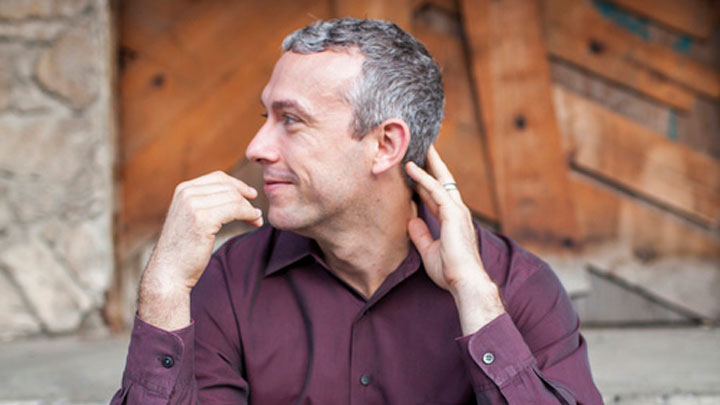Marcus Karl Maroney is currently Assistant Professor of Music at the University of Houston’s Moores School of Music and a member of Musiqa’s Artistic Board. He studied composition and horn at The University of Texas at Austin (B.M.) and Yale School of Music (M.M., D.M.A.). In 1999, he received a fellowship to the Tanglewood Music Center, the First Hearing award from the Chicago Symphony Orchestra and an ASCAP/Morton Gould Young Composer Award. Other awards and fellowships followed, including: a Charles Ives Scholarship from The American Academy of Arts and Letters, the Music 2000 Prize from the University of Cincinnati College Conservatory of Music, further awards from ASCAP, a residency at the Copland House and consecutive Woods Chandler Memorial awards from Yale University. Commissions have come from such organizations and individuals as eighth blackbird, the Orchestra of St. Luke’s, The Norfolk Chamber Music Festival, Timothy McAllister, the Texas Music Festival, the Deer Valley Music Festival, and the Juventas! New Music Ensemble among others. Maroney was recently named the winner of the inaugural College Orchestra Directors Association Composition Contest. Maroney served on the faculty of the Yale School of Music from 2002-2004.
The following is a conversation between local composer Mark Buller and Musiqa composer Marcus Maroney, who’s new work Horn Trio premieres at the upcoming concert American Trios!, March 11 at the MATCH.
MKM: I started on trumpet for a few months, and then was ‘encouraged’ to switch to horn by my middle school band directors. I played horn regularly all the way through my doctoral career, including in the new music ensembles and orchestras at The University of Texas and Yale. I think playing chamber music and/or in an orchestra is the most valuable education for a composer in terms of understanding the way ensembles work. It was by chance that I chose an instrument that lies in the middle of the orchestra’s sound, and the one that, in my own very biased way, I consider the core of most successful orchestral music. In terms of writing for horn as a solo or chamber instrument, it is naturally helpful to have played the instrument. There are things I do write that would have pushed my abilities as a player, but I actually feel like I might be tamer with my horn writing and really aim for what I know will work and sound idiomatic.
MB: What draws you to modern and contemporary music? What other living composers should audiences check out?
MKM: I like the excitement of listening to something new, and the challenge of encountering something unfamiliar and trying to figure out the how/why/what of an unfamiliar piece of art. Discovering what composers are doing to keep music fresh is a great adventure. Right now, three composers that I’m enjoying getting to know are: Bruno Mantovani, a French composer who’s writing very exciting and colorful music that strikes a great balance between being challenging and instantly engaging; Jürg Frey, whose austere string quartets couldn’t be more beautiful or entrancing; and Elizabeth Ogonek, a young American who is composer-in-residence with the Chicago Symphony Orchestra and whose works constantly impress me with their boldness and variety.
MB: If you had to name two of your own pieces as your favorites, which would you choose?
MM:This is a tough question; sometimes my opinions of my pieces change from day to day. If I had to choose right now, I really enjoy my recent Concerto for Chamber Orchestra and an older piece of mine, Fossil, for woodwind quartet and piano. In both I feel like I finally conquered a fear of being “too” lyrical, melodic, consonant, etc., while balancing it with some of the more sophisticated, inner musical games that I like to play while composing each piece.
MB: What’s your favorite restaurant in Houston?

